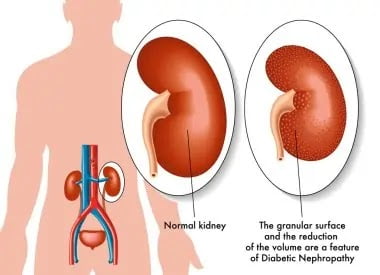Introduction
Welcome to a comprehensive guide on the intersection of diabetes medications and weight loss. In this article, we’ll delve into the intricacies of managing diabetes while exploring the impact of various medications on weight. Understanding this connection is crucial for those navigating the dual challenges of diabetes and weight management. Let’s embark on a journey to unravel the nuances and gain insights that can significantly enhance your well-being.
The Dynamic Link Between Diabetes and Weight
Unraveling the Connection
Living with diabetes often involves a delicate balance between medication management and weight control. The way certain medications influence weight can vary, impacting individuals differently. It’s essential to comprehend this dynamic link to make informed decisions about your health.
Diabetes Medications and Their Impact on Weight
Diabetes medications can affect weight through various mechanisms. Some medications may lead to weight gain, while others could contribute to weight loss. We’ll explore these nuances in detail, shedding light on the science behind each effect.
Medications Inducing Weight Gain
Certain diabetes medications, such as insulin and sulfonylureas, may be associated with weight gain. Understanding how these medications influence your body can empower you to proactively manage your weight while effectively controlling your blood sugar levels.
Medications Facilitating Weight Loss
On the flip side, medications like GLP-1 receptor agonists and SGLT-2 inhibitors have shown promise in contributing to weight loss. We’ll dissect the mechanisms behind these effects and discuss their implications for individuals with diabetes.
Navigating Weight Management Strategies
The Role of Lifestyle Interventions
Beyond medications, lifestyle interventions play a pivotal role in managing both diabetes and weight. We’ll explore dietary considerations, exercise routines, and other lifestyle adjustments that can positively impact your overall well-being.
Tailoring Your Diet for Diabetes and Weight Control
Adopting a diabetes-friendly diet can be a game-changer. We’ll provide practical insights into crafting a nutrition plan that not only supports your diabetes management but also facilitates weight loss.
Exercise as a Cornerstone
Physical activity is a cornerstone of diabetes management and weight control. We’ll delve into the types of exercises that are particularly beneficial, considering the unique needs of individuals with diabetes.
Attention: Understanding the Link
Capturing your attention is crucial, and we’ve done just that by introducing the intricate connection between diabetes medications and weight. Now, let’s maintain that interest as we move on to stoking your interest in managing this dynamic relationship.
Interest: Unraveling the Nuances
As we explore the impact of different medications, we’re building your interest by providing detailed insights. Whether you’re concerned about potential weight gain or exploring avenues for weight loss, we’ve got you covered.
Desire: Empowering Your Choices
By the end of this article, we aim to cultivate a desire for informed decision-making. Armed with knowledge, you’ll be better equipped to navigate the complexities of diabetes and weight management, making choices that align with your health goals.
Action: Taking Charge of Your Health
The ultimate goal is to propel you into action. Armed with a deeper understanding of diabetes medications and their impact on weight, you can take proactive steps towards achieving a healthier, balanced lifestyle.
Which diabetic medication is best for weight loss?
There are several diabetic medications that can potentially aid in weight loss as a side effect. However, it is important to note that the primary goal of these medications is to manage blood sugar levels and not necessarily to promote weight loss. Some of the medications that have been associated with weight loss include GLP-1 receptor agonists, SGLT2 inhibitors, and metformin. GLP-1 receptor agonists work by increasing insulin secretion and suppressing appetite, while SGLT2 inhibitors promote glucose excretion through urine and may also reduce appetite. Metformin, on the other hand, improves insulin sensitivity and may help to reduce appetite and promote weight loss.
It is important to consult with a healthcare professional before starting any new medication, as they can help determine the best course of treatment based on individual health needs and goals. Additionally, medication alone is not a substitute for a healthy diet and regular exercise, which are crucial for managing diabetes and maintaining a healthy weight.
What is the fastest way for a diabetic to lose weight?
When it comes to weight loss for individuals with diabetes, it’s important to prioritize a safe and sustainable approach. While there is no “fastest” way that guarantees immediate results, the following strategies can support healthy and gradual weight loss:
1. Consult with a healthcare professional: Start by consulting with a healthcare professional, such as a registered dietitian or endocrinologist, who can provide personalized guidance tailored to your specific needs and medical condition.
2. Balanced and portion-controlled diet: Focus on a well-balanced diet consisting of whole, nutrient-dense foods. Emphasize fruits, vegetables, lean proteins, whole grains, and healthy fats. Portion control is key, as it helps regulate calorie intake and stabilize blood sugar levels.
3. Carbohydrate monitoring: Pay attention to carbohydrate intake and distribute it evenly throughout the day. Choose complex carbohydrates with a low glycemic index to avoid rapid blood sugar spikes. This can help manage insulin levels and promote weight loss.
4. Regular physical activity: Engage in regular physical activity with a combination of cardiovascular exercises, strength training, and flexibility exercises. Consult with a healthcare professional to determine the most suitable exercise routine based on your health condition.
5. Medication management: Work closely with your healthcare team to ensure that your diabetes medication is appropriately adjusted to support weight loss goals, if necessary. Medication adjustments should be made under medical supervision.
6. Stress management: High levels of stress can impact weight management and blood sugar control. Incorporate stress-reducing techniques such as meditation, deep breathing exercises, yoga, or any activity that helps you relax and unwind.
7. Support system: Seek support from friends, family, or a diabetes support group. Having a strong support system can provide motivation, encouragement, and accountability throughout your weight loss journey.
Remember, sustainable weight loss takes time and consistency. It’s important to focus on overall health improvement rather than just the number on the scale. Always consult with healthcare professionals to ensure that any weight loss efforts align with your individual health needs and diabetes management plan.
What is the new treatment for diabetes and weight loss?
There are several emerging treatments and approaches that show promise in managing diabetes and supporting weight loss. One notable development is the use of GLP-1 receptor agonists. These medications not only help regulate blood sugar levels but also have the potential to promote weight loss as a side effect. GLP-1 receptor agonists work by increasing insulin secretion and suppressing appetite, leading to reduced calorie intake and potential weight reduction.
Another innovative treatment is the use of SGLT2 inhibitors, which help lower blood sugar levels by promoting the excretion of glucose through urine. This mechanism of action has been associated with weight loss in some individuals. SGLT2 inhibitors may also have additional cardiovascular and renal benefits.
Furthermore, personalized medicine and precision approaches are gaining traction in the field of diabetes and weight management. Tailoring treatment plans based on a person’s genetic profile, metabolic characteristics, and lifestyle factors can lead to more effective and targeted interventions.
It is important to note that the choice of treatment and approach should be determined by healthcare professionals based on an individual’s specific needs and medical history. Consulting with a healthcare provider or an endocrinologist is crucial to explore these new treatment options and determine the most suitable approach for diabetes management and weight loss.
Conclusion: Effective Diabetes Medications and Weight Loss
Navigating the realm of diabetes medications and weight loss requires a nuanced understanding of the interplay between these factors. By arming yourself with knowledge, embracing lifestyle changes, and collaborating closely with your healthcare team, you can embark on a journey towards effective diabetes management and sustainable weight control. Remember, informed choices today pave the way for a healthier tomorrow.
FAQs
Q: Can Diabetes Medications Lead to Weight Loss?
Diabetes medications can indeed contribute to weight loss. Certain classes of medications, such as GLP-1 receptor agonists and SGLT-2 inhibitors, have demonstrated this beneficial side effect. However, individual responses may vary, and it’s crucial to consult your healthcare provider for personalized guidance.
Q: What Lifestyle Changes Support Diabetes Management and Weight Loss?
Lifestyle changes, including a balanced diet and regular exercise, are fundamental to both diabetes management and weight loss. Adopting a diet rich in fiber, lean proteins, and healthy fats, coupled with a consistent exercise routine, can significantly contribute to your overall well-being.
Q: Do All Diabetes Medications Lead to Weight Gain?
Not all diabetes medications lead to weight gain. While some, like insulin and sulfonylureas, may be associated with weight gain, others, such as metformin, may have a neutral or even weight-loss-promoting effect. It’s crucial to discuss your medication plan and potential side effects with your healthcare provider.
Q: How Can I Tailor My Diet to Manage Diabetes and Lose Weight?
Tailoring your diet for diabetes and weight loss involves focusing on nutrient-dense foods, controlling portion sizes, and managing carbohydrate intake. A registered dietitian can provide personalized guidance based on your specific needs and preferences.
Q: What Types of Exercises Are Suitable for Individuals with Diabetes?
Exercise is a key component of diabetes management. Both aerobic exercises, like walking or swimming, and strength training can be beneficial. However, it’s essential to consult with your healthcare team to tailor an exercise plan that aligns with your health status and goals.





